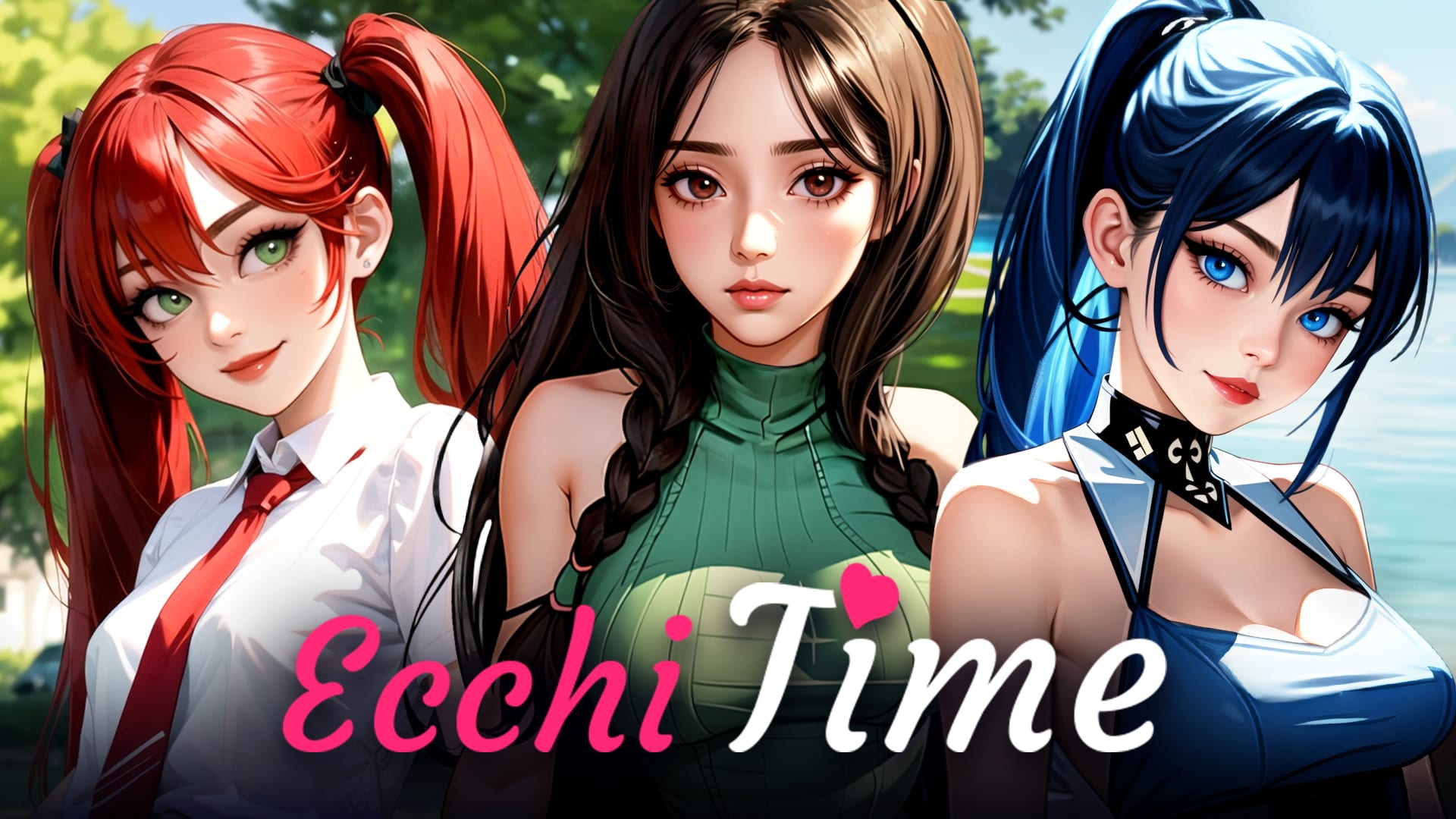Ecchi Meaning: A Deep Dive Into The World Of Anime And Beyond
When you hear the word "ecchi," what comes to mind? For many, it's a term associated with anime, manga, and Japanese pop culture. But what exactly does ecchi mean, and why has it become such a prominent part of modern entertainment? In this article, we'll explore the origins, cultural significance, and nuances of ecchi, breaking down its meaning and relevance in today's world. So grab your favorite snack, and let's dive right in!
Ecchi meaning might seem straightforward at first glance, but there's more to it than meets the eye. It's not just about risqué content; it's about how storytelling and character development intersect with cultural norms. As we delve deeper, you'll discover that ecchi is far from being a one-dimensional concept.
Why does understanding ecchi matter? Well, if you're a fan of anime or manga, chances are you've come across this term. Whether you're curious about its roots or want to know how it fits into the broader landscape of media, this article's got you covered. Let's get started!
- Kannada Movies Online Watch Latest Releases Movierulz Updates
- Noelle Leyva The Truth Behind The Leaks Amp Her Rise
What Is Ecchi Meaning? The Basics
First things first, let's break down the basics. Ecchi is a Japanese slang term derived from the first letter of the Japanese word for "pervert" – etchi. Over time, it evolved into a term describing content that features mild sexual themes, suggestive humor, or fanservice. While it might sound simple, ecchi covers a wide range of material, from subtle innuendos to more explicit scenes.
Think of ecchi as the gateway between lighthearted comedy and more mature content. It's that sweet spot where things get playful without crossing into full-on hentai territory. But don't let the playful nature fool you – ecchi often carries deeper cultural and artistic significance.
Common Features of Ecchi Content
- Mild sexual innuendos
- Fanservice scenes like accidental nudity or revealing outfits
- Comedic situations involving suggestive themes
- Focus on character interactions and relationships
These elements make ecchi unique. It's not just about shock value; it's about how these elements enhance storytelling and character development.
- Movierulz The Ultimate Guide To Streaming Reviews More
- 7movierulz Kannada Movies 2024 What You Need To Know
The History of Ecchi: Where It All Began
To truly understand ecchi meaning, we need to look back at its origins. The concept of ecchi can be traced back to early Japanese literature and art, where suggestive themes were often used to add depth to stories. However, the modern ecchi we know today really took shape during the rise of anime and manga in the late 20th century.
During the 1980s and 1990s, as anime gained popularity worldwide, ecchi became a staple of the industry. Shows like "Dirty Pair" and "Bubblegum Crisis" incorporated ecchi elements to appeal to a broader audience. Over time, it became a genre in its own right, influencing countless creators and fans alike.
Key Influences on Ecchi Development
Several factors contributed to the growth of ecchi:
- The rise of adult-oriented manga magazines
- Technological advancements allowing for more detailed animation
- Changing societal attitudes toward sexuality in media
These influences helped shape ecchi into the diverse genre we see today. But how has it evolved over the years? Let's find out.
Ecchi Meaning in Modern Anime
In today's anime landscape, ecchi plays a significant role. It's no longer confined to niche titles but has become a mainstream element in many popular series. Shows like "High School DxD" and "To Love-Ru" showcase how ecchi can be seamlessly integrated into larger narratives, enhancing character dynamics and plot development.
Modern ecchi often strikes a balance between humor and drama, creating engaging stories that resonate with audiences. It's not just about titillation; it's about exploring complex themes like relationships, identity, and self-discovery.
Why Do People Love Ecchi?
So, what makes ecchi so appealing? For starters, it offers a unique blend of entertainment and escapism. Fans enjoy the playful nature of ecchi, as well as its ability to tackle mature themes in a lighthearted way. Plus, it often features well-developed characters and captivating storylines, making it a favorite among anime enthusiasts.
Of course, like any genre, ecchi has its critics. Some argue that it relies too heavily on fanservice or objectifies characters. However, when done well, ecchi can be a powerful tool for storytelling and character exploration.
Ecchi vs. Hentai: What's the Difference?
One common question people have is, "What's the difference between ecchi and hentai?" While both involve adult themes, they serve different purposes. Hentai focuses on explicit sexual content, often prioritizing visual stimulation over storytelling. Ecchi, on the other hand, emphasizes character interactions and humor, using suggestive themes to enhance the narrative.
Think of it like this: ecchi is the gateway drug to more mature content. It's less about explicitness and more about creating a fun, engaging experience for viewers. Both genres have their place, but ecchi tends to appeal to a wider audience due to its balanced approach.
Key Differences Between Ecchi and Hentai
- Ecchi focuses on storytelling; hentai focuses on explicit content
- Ecchi often includes comedic elements; hentai is more serious
- Ecchi characters are usually more developed than hentai characters
Understanding these distinctions helps clarify ecchi meaning and its role in the anime world.
Cultural Significance of Ecchi
Ecchi isn't just a genre; it's a reflection of cultural attitudes toward sexuality and relationships. In Japan, where social norms around sex can be conservative, ecchi provides a safe space for exploring these themes. It allows creators and audiences to discuss sensitive topics without crossing into taboo territory.
Additionally, ecchi serves as a bridge between different cultures. As anime and manga gain global popularity, ecchi helps introduce international audiences to Japanese storytelling traditions. It's a testament to the universal appeal of humor, romance, and character-driven narratives.
How Ecchi Reflects Modern Society
Today's ecchi often mirrors societal changes, addressing issues like gender equality and consent. Shows like "Isekai Cheat Magician" and "Konosuba" incorporate these themes in meaningful ways, challenging traditional stereotypes and promoting positive representations.
This evolution highlights ecchi's adaptability and relevance in an ever-changing world. It proves that even playful content can contribute to important conversations and cultural growth.
Popular Ecchi Anime and Manga
Now that we've covered the basics, let's take a look at some popular ecchi titles. These shows and manga have become fan favorites for their engaging stories, memorable characters, and clever use of ecchi elements.
Top 5 Ecchi Anime
- High School DxD
- To Love-Ru
- Little Busters!
- Sekirei
- Love Hina
Each of these series brings something unique to the table, showcasing the versatility and creativity of ecchi as a genre. Whether you're into action-packed adventures or heartfelt romances, there's an ecchi title out there for everyone.
Top 5 Ecchi Manga
- School Rumble
- Hayate the Combat Butler
- Sengoku Otome
- Golden Time
- Maoyu
These manga series offer a mix of humor, drama, and character development, proving that ecchi isn't just about fanservice. It's about crafting compelling stories that resonate with readers.
Ecchi Meaning in Western Media
While ecchi originated in Japan, its influence has spread to Western media as well. Shows like "BoJack Horseman" and "F is for Family" incorporate similar themes, using humor and suggestive content to explore mature topics. This cross-cultural exchange highlights the universal appeal of ecchi-style storytelling.
Western creators have embraced ecchi's core principles, adapting them to fit their own cultural contexts. The result is a rich tapestry of content that appeals to fans around the globe.
Examples of Western Ecchi-Inspired Content
- BoJack Horseman
- F is for Family
- Archer
- Family Guy
- American Dad!
These shows demonstrate how ecchi meaning transcends cultural boundaries, creating a shared language of humor and storytelling.
Future of Ecchi: Trends and Predictions
As anime and manga continue to evolve, so too does ecchi. Emerging trends suggest a shift toward more inclusive and diverse representations, with creators focusing on character depth and meaningful interactions. This evolution ensures that ecchi remains relevant in an ever-changing media landscape.
Additionally, advancements in technology, such as virtual reality and interactive storytelling, offer exciting possibilities for the future of ecchi. These innovations could revolutionize how audiences experience and engage with ecchi content.
What to Expect in the Future
- Increased focus on character development
- More diverse and inclusive representations
- Integration of new technologies for immersive experiences
As the industry grows, so too will ecchi's potential to entertain and inspire fans worldwide.
Conclusion: Embracing Ecchi Meaning
In conclusion, ecchi meaning goes far beyond its surface-level associations. It's a genre that celebrates storytelling, character development, and cultural exchange, offering fans a unique blend of humor, romance, and adventure. Whether you're a long-time fan or just discovering ecchi for the first time, there's something for everyone in this vibrant world.
So why not dive in and explore the many facets of ecchi? Leave a comment below sharing your favorite ecchi titles or thoughts on the genre. And don't forget to check out our other articles for more insights into the world of anime and manga. Together, let's celebrate the power of storytelling and the universal language of ecchi!
Table of Contents:
- What Is Ecchi Meaning? The Basics
- The History of Ecchi: Where It All Began
- Ecchi Meaning in Modern Anime
- Ecchi vs. Hentai: What's the Difference?
- Cultural Significance of Ecchi
- Popular Ecchi Anime and Manga
- Ecchi Meaning in Western Media
- Future of Ecchi: Trends and Predictions
- Conclusion: Embracing Ecchi Meaning
Article Recommendations
- Stream Smarter Find Movies Online With Justwatch More
- Maligoshik Leaks Scandal Privacy Amp Public Reaction Exposed



Detail Author:
- Name : Mr. Dusty Mitchell II
- Username : graham.harmon
- Email : everette90@lockman.net
- Birthdate : 1985-11-08
- Address : 298 Rosie Shore Apt. 825 McLaughlinhaven, TN 09341-5496
- Phone : 423.304.7905
- Company : Schroeder LLC
- Job : Food Scientists and Technologist
- Bio : Molestiae est quod quo consequuntur. Natus veritatis sit non voluptas. Et sed neque architecto quibusdam non adipisci pariatur vero. Sunt pariatur molestias quos qui cumque.
Socials
instagram:
- url : https://instagram.com/parkerbalistreri
- username : parkerbalistreri
- bio : Dolores accusamus et iste sequi. Nulla cupiditate saepe deleniti qui.
- followers : 739
- following : 1110
twitter:
- url : https://twitter.com/parker_balistreri
- username : parker_balistreri
- bio : Voluptatem deserunt optio eveniet impedit repellat doloribus. Eligendi autem sed alias eius. Aut facilis accusantium id delectus.
- followers : 2282
- following : 2681